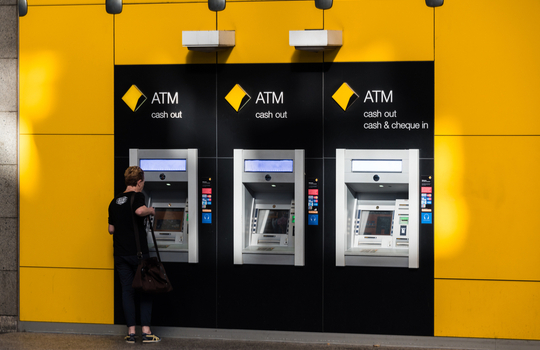
The Commonwealth Bank has blamed a “coding error” in its Intelligent Deposit Machines (IDMs) for alleged breaches of money laundering and terrorism laws.
Financial intelligence agency and industry regulator, AUSTRAC, has initiated a civil suit against the bank alleging “serious and systemic non-compliance with the Anti-Money Laundering and Counter-Terrorism Financing Act 2006 (AML/CTF Act).”
AUSTRAC claims the bank failed to report more than 53,000 instances of suspicious activity on its IDMs over a three-year period, resulting in $77 million in suspicious transactions remaining uncatalogued.
The bank states that a “coding error”, resulting from a late 2012 software update, prevented IDMs from reporting suspicious transactions to the regulator – a legal requirement for all banking institutions.
“Following the software update, a coding error occurred which meant the IDMs did not create the TTRs (Threshold Transaction Reports) needed.”
By law, banks based in Australia are required to report all cash transactions over $A10,000 to AUSTRAC within 10 business days in the form of a TTR.
Despite the fault appearing in 2012, the bank claims the error only became apparent in 2015. AUSTRAC was subsequently notified “within a month of discovering [the error],” the bank said, whereby the missing TTRs were delivered to the regulator and the “coding issue fixed”.
AUSTRAC claims that between November 2012 and September 2015, CBA failed to deliver 53,506 TTRs to the agency, representing approximately 95 per cent of the threshold transactions processed through the bank’s IDMs, representing a total value of $624.7 million.
IDMs, a type of advanced ATM, offer self-serve transaction facilities which can instantly credit cash and cheque deposits to recipient accounts. The machines were launched to the public in May 2012.
Despite being aware of these suspect transactions, CBA ultimately failed in its duty “to monitor customers to mitigate and manage” money laundering and terrorism financing risk, AUSTRAC said in a statement.
CBA said it is working closely with AUSTRAC and the Australian Federal Police and is taking “proactive steps… to further enhance our compliance program and operations.” However, the bank did acknowledge gaps in its compliance processes.
“We need to be ever more vigilant in the area of financial crime and anti-money laundering,” the bank said in a statement.
“The rapid evolution of technology in banking, the increased sophistication of criminal activity, and higher regulatory expectations together create an imperative to continuously raise our standards,” it added.
CBA is already considering the implementation of software to improve monitoring of suspicious transactions, according to a recent feature by Australian Financial Review journalist James Eyers.
Eyers said the bank has been exploring regulatory technology developed externally that can make ‘suspicious matter reporting’ and account monitoring more reliable.
“Several regtech start-ups have been invited to meet with CBA in the coming weeks as it explores options to bolster its surveillance capability” following AUSTRAC’s findings, Eyers said.
Late lodgement of TTRs to AUSTRAC carries a penalty of up to $18 million.
While some reports claim the penalty may apply to each of the more than 53,000 unreported transactions, CBA said that the “alleged contraventions could be considered to arise from a single course of conduct to the extent that they emanated from the same systems error.”
Fellow big four banks have been scrambling to distance themselves from the controversy surrounding CBA.
In a statement, ANZ chief risk officer Nigel Williams assured the public they “have systems in place, including training for every staff member, to ensure we comply with our anti-money laundering and counter terrorism financing obligations.”
Williams added: “We strongly support AUSTRAC’s role in disrupting serious financial crime and will continue to meet our obligations to monitor and report suspicious activity to AUSTRAC and the Australian Federal Police.”
ANZ has rejected claims that its facilities have also been used to launder criminal funds. The bank said it was unaware of any investigations by AUSTRAC into its operations.
A report by The Australian Financial Review has alleged both ANZ and Westpac facilities were also used to wash criminal funds. Investigations contine.





